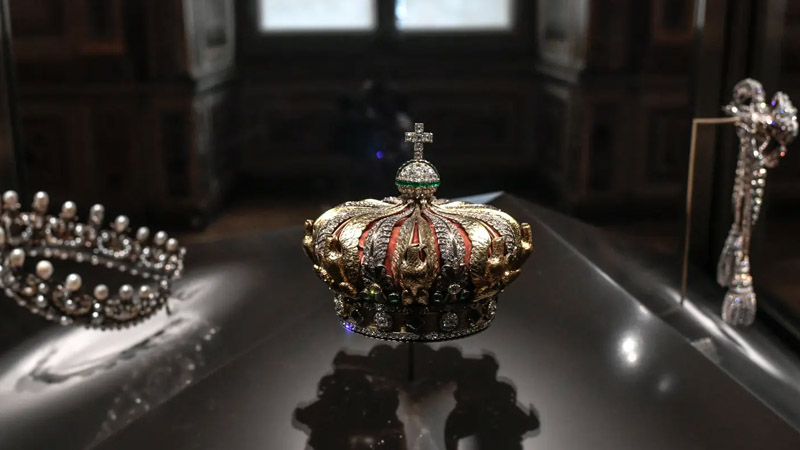
A week after four thieves pulled off a daring seven-minute robbery at the Louvre, police have made their first arrests in a case that’s shaken France and exposed serious gaps in museum security. Last Sunday, the robbers showed up early in the morning with a furniture-lift truck, cut through a window in the Galerie d’Apollon, and threatened guards before smashing two display cases.
They escaped on scooters with eight priceless jewels once owned by France’s long-departed royals. The stolen treasure, estimated to be worth about 88 million euros ($102.63 million), included necklaces, tiaras, and brooches that symbolized centuries of French history.
Authorities confirmed on Saturday that one suspect was caught at Paris Charles de Gaulle Airport while preparing to leave the country, according to Paris prosecutor Laure Beccuau. AFP reported that two others were taken into custody on charges of organized theft and criminal conspiracy.
Even with the arrests, questions linger over how the world’s most famous museum could be so easily breached. The thieves parked a truck fitted with a lift, used it to reach a second-floor balcony, and slipped inside—apparently without drawing attention from police or security.
Museum employees said the sight of such vehicles outside the Louvre wasn’t unusual. “Often there are window cleaners,” said Vanessa Michaux Valora, a security officer with 21 years at the museum and a SUD union representative. “Now we’re aware they no longer work at weekends, but at the time it didn’t look unusual.”

Her colleague Julien Dunoyer, another veteran security worker and union representative, said ongoing maintenance in a nearby garden meant the truck didn’t raise suspicion. “That’s the problem with having lots of work in different locations,” he said.
Both Valora and Dunoyer were working elsewhere in the museum when the alarm went off. “We were asking ourselves whether it could be an attack and we needed to make sure everyone was safe,” Valora said. “We didn’t expect it to be so catastrophic. It’s extremely shocking. We’re really hurting.”
Louvre director Laurence des Cars told French senators the theft exposed “weaknesses” in the museum’s security system. “We did not detect the thieves’ arrival early enough,” she said, blaming the failure partly on a lack of exterior surveillance cameras.
The SUD Culture labor union pointed to years of funding cuts and the loss of security jobs as key reasons for the breach. In June, Louvre staff walked off the job briefly to protest understaffing and poor working conditions.
President Emmanuel Macron, who earlier this year announced a six-year renovation plan for the museum that includes new security measures, called the robbery “an attack on a heritage that we cherish because it is our history.” He promised the jewels would be recovered and the thieves brought to justice. “Everything is being done, everywhere, to achieve this,” he said.
But as the investigation continues, some fear the worst. Alexandre Portier, the lawmaker leading the parliamentary inquiry, said the theft has left “a wound” that may never fully heal. “I worry that as we speak, the jewels have already been dismantled, chopped up, and risk being altered,” he told NBC News. “Even if we find all the elements, we couldn’t put back together the crowns and necklaces that were stolen.”







